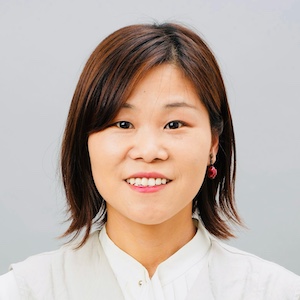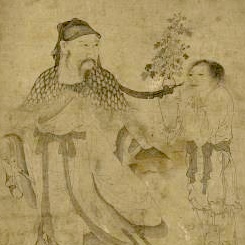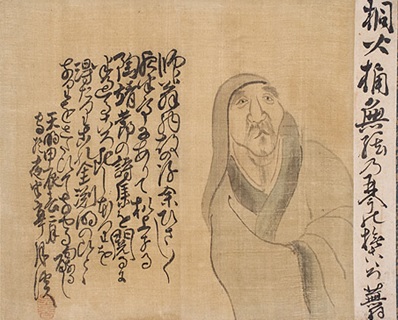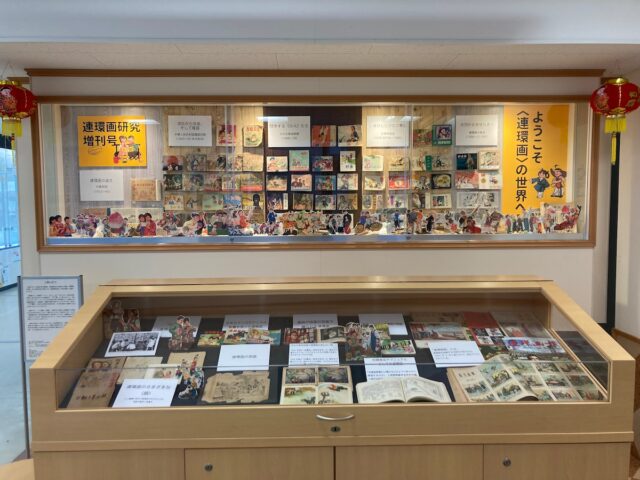Profile

- Research Subject
- The philosophical ideology of Chinese poets, especially the philosophy of reclusion.
- The history of classical Chinese poetry criticism.
- Gender issues observed in Ming and Qing novels.
- Research Fields
- Classical Chinese literature and Chinese philosophy
- Faculty - Division / Research Group / Laboratory
- Division of Humanities / Research Group of Cultural Representations / Laboratory of Sinology
- Graduate School - Division / Department / Laboratory
- Division of Humanities / Department of Cultural Representations / Laboratory of Sinology
- School - Course / Laboratory
- Division of Humanities and Human Sciences / Course of Linguistics and Literature / Laboratory of Sinology
- Contact
Email: kuma(at)let.hokudai.ac.jp
Replace “(at)” with “@” when sending email.Foreign exchange students who want to be research students (including Japanese residents) should apply for the designated period in accordance with the “Research Student Application Guidelines”. Even if you send an email directly to the staff, there is no reply.- Related Links
Lab.letters


"Life of an Individual" poetry that penetrates eras and nations, and captures hearts
During the Six Dynasties Period, a chaotic political situation in China, many people left the secular world and took the path of seclusion in order to truly face themselves due to a collapse in the faith of Confucian thought whereby one lives for country and society. One such recluse, Tao Yuanming (365?-427 ) , wrote of his daily life in the countryside and the conflicts and desires of his heart, and he has been assessed as being one of the leaders of reclusive poets, both past and present.
Yang Zhu (440?-360? BC) was a philosopher during the Age of Warring States and he provided the basis for Tao Yuanming’s way of life. Yang Zhu advocated for complete individualism at a time when the state had precedence, and he won Tao Yuanming’s heart over time with his teachings on “fulfilling one’s own life.” The work of Tao Yuanming in turn captured the hearts of poets such as Li Bai (701-762), Du Fu (712-770), and Bai Juyi (772-846), who were at the mercy of the world, as well as Japanese intellectuals. You can feel the universality of splendid poetry and thought through his influence.


Sharing expertise in a fun and easy-to-understand way
Reading a poem that is condensed with carefully chosen words overlaps with an understanding of the concepts of “I” and “you,” that are condensed with the past and the current moment. If you think about it, you can feel that it is equally difficult and equally interesting to comprehend the diversity that is concealed in both people and individual poems.
The club of the Sinology Laboratory at our university, where I was also enrolled as a student, has gatherings of “I” in which everyone is independent, and they also normally have exciting “we” gatherings where they have free debates. The professors, who value having the same perspective as students, also teach the enjoyment of specialized research and the joy of sharing that with others in a fun and easy-to-understand way. I would like to share with you the many things I have learned here.
Message
In the well-known book Lantingji Xu (“Orchid Pavilion Preface”) by Wang Xizhi (303-361) from the Eastern Jin Dynasty, he describes the elegance of ancient Chinese literature salons. These gatherings of intellectuals felt the vastness of the universe, looked upon the prosperity of all things, and enthusiastically played in-between the concepts of heaven and earth. In the Sinology Laboratory, each generation of students has inherited a similar salon-like atmosphere, and with respect toward the intentions of each student, we all make every effort to continuously support students with what they want to study and research.
This is an important first step for mastering methodologies for accurately reading and understanding literature, learning how to research and use materials, and our goal is to develop people who can interpret things from a wide variety of angles. If we take Chinese poetry as an example, the “essence” that is the condensed experience, feelings, and thoughts of a poet becomes dissolved in the “water” that flows through each heart, and each of these have a different flavor. In this sense, I invite you to try and enthusiastically play in the world of Chinese literature with people that have unique flavors.


